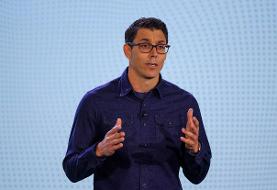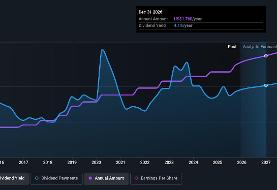Firouz Naderi
News and Articles
 Dr. Firouz Naderi Paralyzed from Neck Down: Was his ...
Dr. Firouz Naderi Paralyzed from Neck Down: Was his ...
 A US-Iran War Can Start in Persian Gulf by A Third ...
A US-Iran War Can Start in Persian Gulf by A Third ...
 Which Parts of Tehran are Sinking Fast? and Why?
Which Parts of Tehran are Sinking Fast? and Why?
 Farhadi's remarks to Israeli Paper about Ahmadinejad and ...
Farhadi's remarks to Israeli Paper about Ahmadinejad and ...
 Iranian Americans support Obama vs. pro-Netanyahu, ...
Iranian Americans support Obama vs. pro-Netanyahu, ...
Dr. Firouz Naderi was born on 25 March 1946 in Shiraz,Iran. He completed his primary and secondary education in Iran and then went to America to continue his studies. He earned his bachelor's degree in electrical engineering at Iowa State University in 1969. Naderi received his doctorate from the University of Southern California in electrical engineering (writing his dissertation in the area of digital image processing).
Dr. Naderi is the Director for the Solar System Exploration Directorate at Jet Propulsion Laboratory. Dr. Naderi joined JPL in September 1979. His career at JPL has spanned system engineering, technology development, and program and project management for satellite communications systems, Earth remote sensing observatories, astrophysical observatories and planetary systems.
His early work at JPL was on system design of large satellite-based systems for nationwide cellular phone coverage. He went to NASA Headquarters in Washington, D.C., for two years in the mid-80s to serve as the program manager for the Advanced Communications Technology Satellite (ACTS), the front-runner of today’s multi-beam, space-switching commercial satellites.
Gradually, he grew interested in Earthobserving missions and became project manager for the NASA Scatterometer (NSCAT), a global weather-forecasting satellite aimed at making measurements of winds over the global oceans. Later, he became manager of NASA’s Origins program, designed to search for life in the universe. His oversight of these programs earned him a NASA Outstanding Leadership Medal.

He was named head of the Mars Exploration Program at JPL in 2000 after the Program had suffered two consecutive failures. He helped replan the program as a chain of scientifically, technologically and operationally interrelated missions with a spacecraft launch to Mars every two years. Naderi led the program for the next five years, a span of time that included the successful launch of Mars Odyssey, landing of the Mars Exploration Rovers, Spirit and Opportunity, and the development of the Mars Reconnaissance Orbiter. Before Mars, he managed the Origins Program, NASA's ambitious, technology-rich plan to search for Earth-like planets in other planetary systems.
In addition to his current responsibilities on the Mars program, Naderi also serves as director of the Solar System Exploration Program, which is focused on planetary exploration and astrobiology — the search for life outside of the solar system. Like the majority of his colleagues, Naderi does not question the existence of life outside of the solar system. He is quick to add that it will take time — perhaps many decades — to find it, but that ultimately, that is what civilization will be remembered for.
“People are really impatient, and this isn’t something as fast-paced as, say, a hockey game,” he says. “But I have no doubt that in the universe, there is life outside of the Earth. If, by chance, we find that there was life on Mars, however primitive, and that’s the first place we’ve ever looked, what do you think the possibilities are for life elsewhere in the universe?”
Awards and honors
Fellow of the American Institute of Aeronautics and Astronautics (AIAA) / 2010 recipient of the William Randolph Lovelace II Award from the American Astronautical Society (AAS) / 2005 recipient of Ellis Island Medal of Honor / 2004 winner of the Liberal Prize / NASA Outstanding Leadership Medal / Space Technology Hall of Fame Medal and / NASA’s highest award – The Distinguished Service Medal .





































































